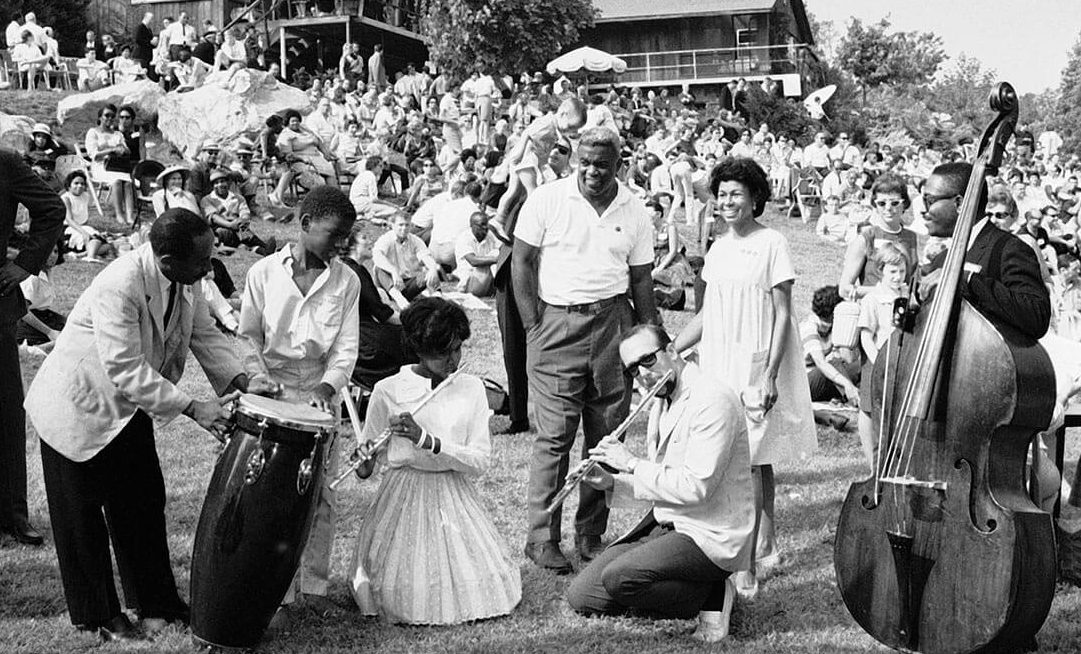Forty-eight years ago, one year after the untimely death of Jackie Robinson on October 24, 1972, Rachel Robinson gathered a group of family and friends to embark on a mission to perpetuate the legacy of her much beloved husband. Among those Rachel Robinson enlisted to help establish the Jackie Robinson Foundation (JRF) were her half-brother Charles T. Williams, prominent lawyer, civil rights activist and Ambassador to Ghana Franklin Williams (no relation) and Martin Edelman, also an attorney who had worked with Mr. Robinson and who remains on JRF’s board today. Hence, in 1973, the Jackie Robinson Foundation was incorporated and since then has provided educational opportunities, through the awarding of four-year scholarships coupled with mentoring, job placement and leadership development opportunities to highly motivated college students with financial need.
Rachel Robinson gathered a group of family and friends to embark on a mission to perpetuate the legacy of her much beloved husband.
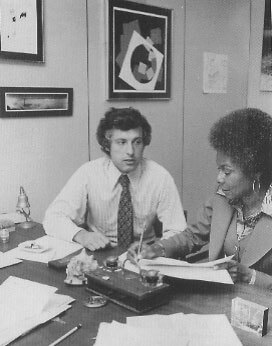
determined to develop a self-sustaining nonprofit organization
From its inception, JRF’s founders were determined to develop a self-sustaining nonprofit organization that would not depend on government funding. Initially relying solely on the passion and the personal financial support of its first board of directors, the Foundation was able to secure its first corporate partner, Chesebrough-Ponds (now Unilever), in its inaugural year. Ralph Ward, Chairman and Chief Executive Officer of Chesebrough- Ponds and his executive staff, funded and assisted in establishing JRF’s first program model. A unique and comprehensive program, the Education and Scholarship Program awarded college scholarships of up to $2,000 for four years of study. In addition, JRF offered support through career counseling and by identifying and facilitating summer jobs for JRF Scholars, including at Chesebrough-Ponds, which reserved entry-level jobs for JRF Scholar graduates.

the Foundation expanded its reach to the west coast
In 1978, the Foundation expanded its reach to the west coast, establishing a strong institutional tie with the University of California at Los Angeles (UCLA). The home of the Bruins is Rachel Robinson’s alma mater and where, as a freshman, she met Jackie Robinson, who was a senior at the time. The next seven years, between 1978 and 1985, marked an important era of exploration and growth for the Foundation. Jerry Lewis was appointed JRF’s first President, and JRF opened its first office on Court Street in Brooklyn sharing space with the Jackie Robinson Housing Development Corporation. As the number of Scholars increased, the Foundation initiated the annual “Networking Weekend,” which convened JRF Scholars and members of the selection committees for a long weekend every spring in New York City to administer hands- on support and encourage camaraderie among the scholarship recipients.
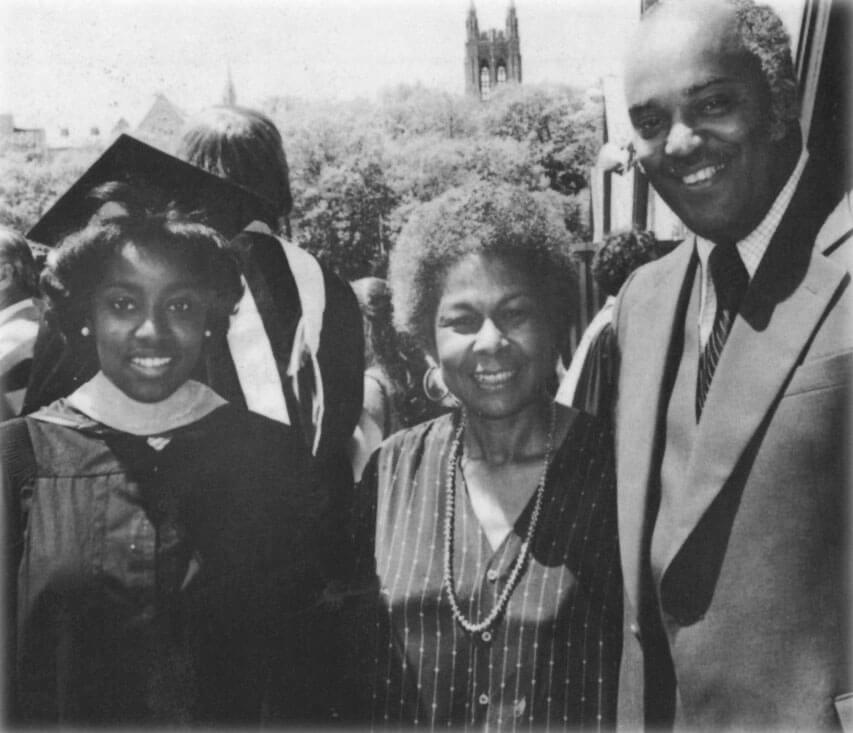
Mentoring and Leadership Conference Created
The “Networking Weekends,” now dubbed the “Mentoring and Leadership Conference,” became the pinnacle of JRF’s year-round, four-year scholarship and mentoring program. Over the years, the flagship mentoring weekend grew into a meticulously orchestrated, formal program that involves JRF Scholars, alumni, selection committee members (now known as Scholar Advisory Committees), board members, corporate partners, community leaders, and a host of professionals who help to dispense elements of what has been codified into the Foundation’s mentoring curriculum, “42 Strategies for Success”.
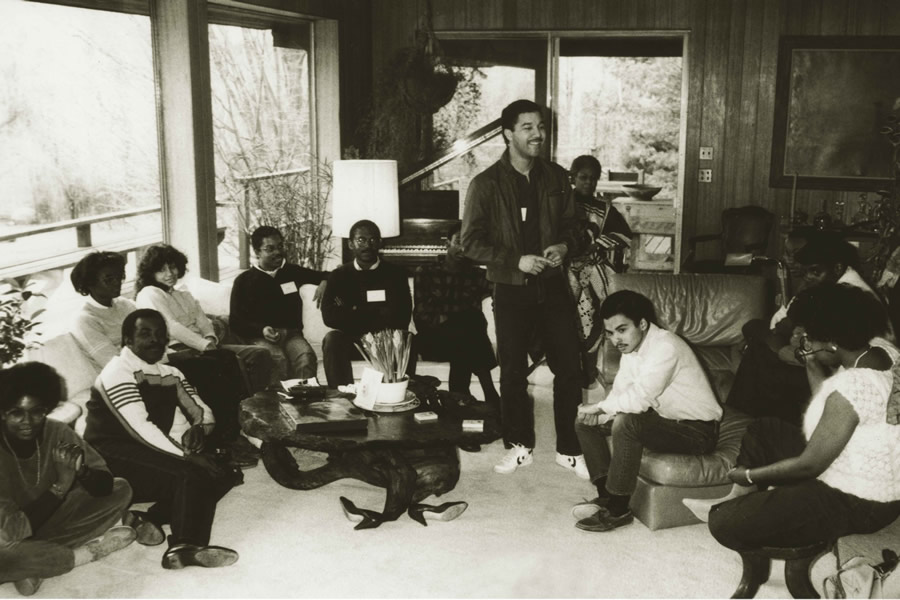
In 1979, JRF hosted its first independent awards dinner
In 1979, JRF hosted its first independent awards dinner that raised significant funds to undergird JRF operations. At that dinner and at each annual one since, JRF confers its Robie Award upon an extraordinary individual/s who has promoted social justice and humanitarianism in the spirit of Jackie Robinson’s life and legacy. The first Robie Awards were presented to tennis icon Arthur Ashe and Ralph Ward, the CEO of Chesebrough-Ponds. The Robie Awards Dinner continues today as a key fundraising and public relations event for the Foundation.
Beginning in the Foundation’s early years and for decades, another annual event raised funding, “An Afternoon of Jazz,” until 2001. The much-anticipated, annual JRF jazz concerts grew out of a concert hosted by the Robinson Family at the home in Stamford, Connecticut, in 1963, that raised funds to support the civil rights efforts in the south, specifically, in that first year, to cover bail money needed by protest organizers in Birmingham, Alabama, including Rev. Dr. Martin Luther King, Jr.
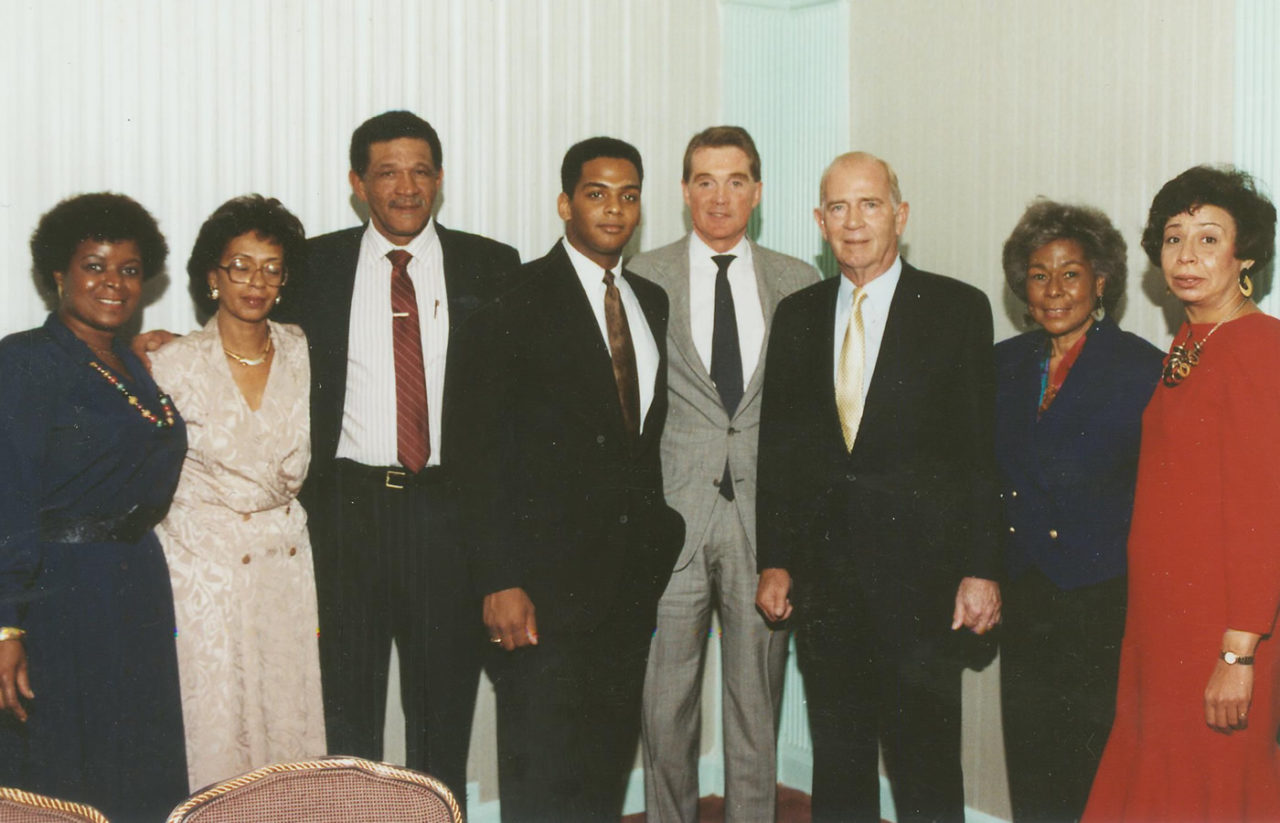
Jackie Robinson Foundation partners with Americas top Corporations to bring funding to students
By the mid-1980s, corporate partners, including General Electric and Merrill Lynch, made it possible for JRF to expand the number of scholars awarded and increase the amount of annual grants from $1,000 to $4,000 a year.
In 1986, Betty Phillips Adams became JRF’s second president, following Jerry Lewis’ tenure. In 1987, she oversaw the 40-year commemoration of Jackie Robinson’s barrier-breaking entry into Major League Baseball and the opening of a Coca-Cola Company-sponsored touring exhibition, “Jackie Robinson: An American Journey” exhibition. The exhibition took Robinson’s story to seven cities across the United States in three years.
In 1998, Steven Brown became the Foundation’s third president, after Betty Adams’ retirement and 11-year term. Brown served from 1998 to 2003, during which the Foundation received two large grants from the Starr Foundation, affiliated with AIG, Inc., totaling $1.7 million, with which the Foundation increased the number of JRF Scholars supported annually to over 100.
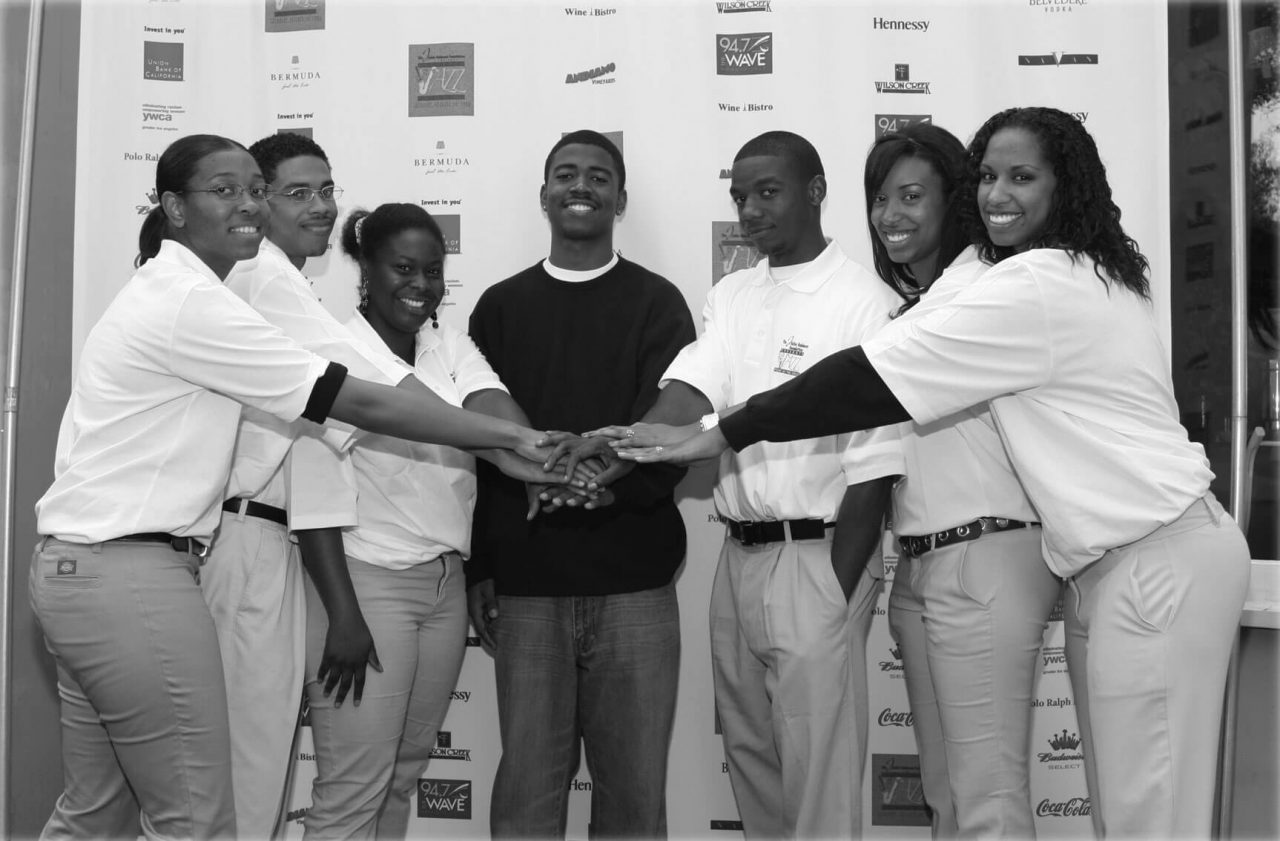
In 2004, Della Britton Baeza became JRF’s fourth president and chief executive officer.
In 2004, Della Britton Baeza became JRF’s fourth president and chief executive officer. Early in her tenure, Britton focused on fundraising and the Foundation’s technological capability, including digitization of the scholarship application process, adoption of software to sort and evaluate the scholarship applicant pool and development of an interactive Foundation website. She also initiated development of a long-term strategic plan, which led to expansion and enhancement of the scholarship program as well as a substantial increase and diversification of JRF’s funding base and students served. Today, there are some 242 JRF Scholars and graduate fellows supported each year.
As it celebrates its 48th anniversary, JRF remains steadfast in its commitment to social change through educational advancement and leadership development of the nation’s minority youth. With the establishment of the Jackie Robinson Museum and its anticipated program elements the Jackie Robinson Foundation will encourage greater humanitarianism among visitors of all ages and continue to help develop the next generation of dynamic leaders.
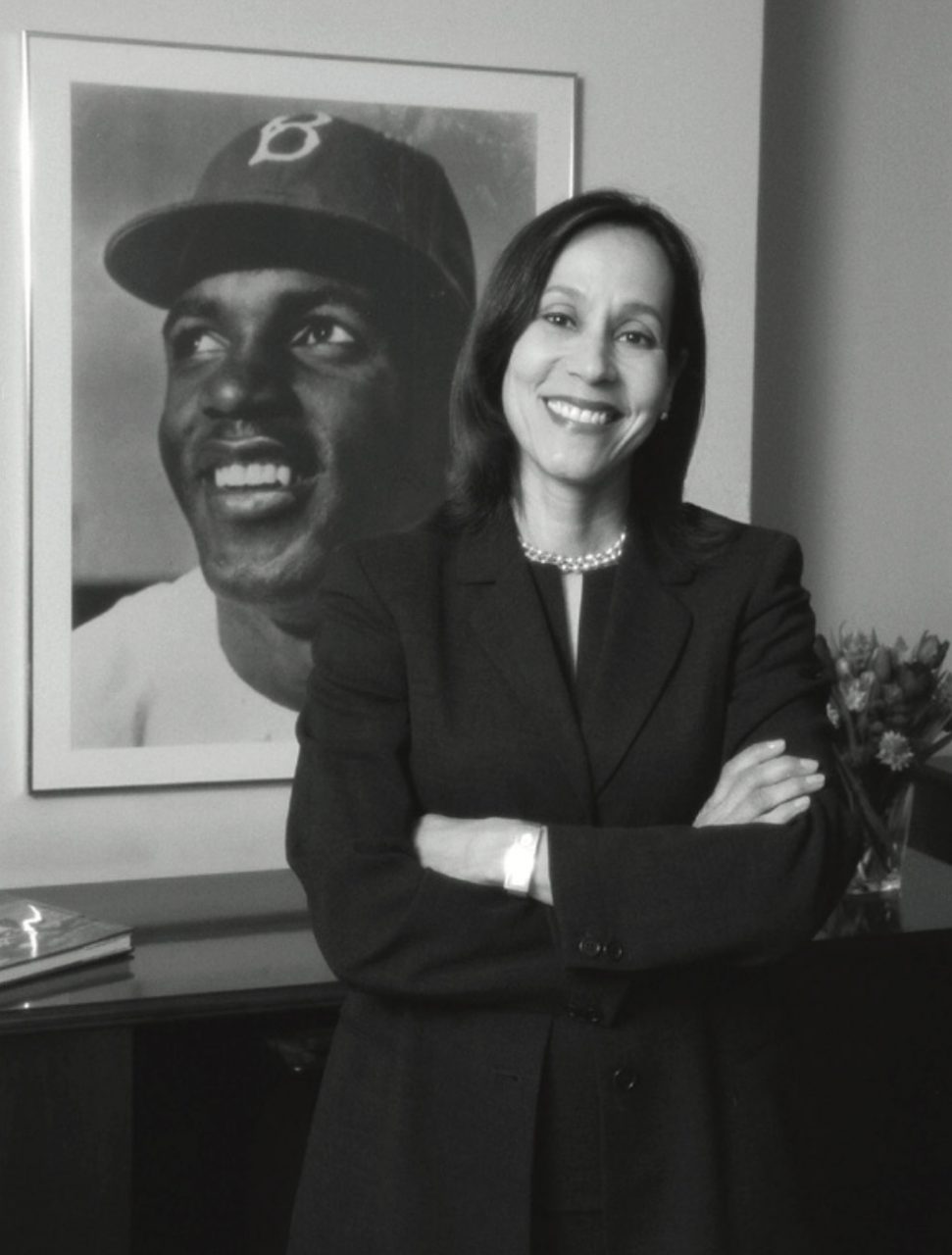 Portrait of Della, our current Foundation President.
Portrait of Della, our current Foundation President.
